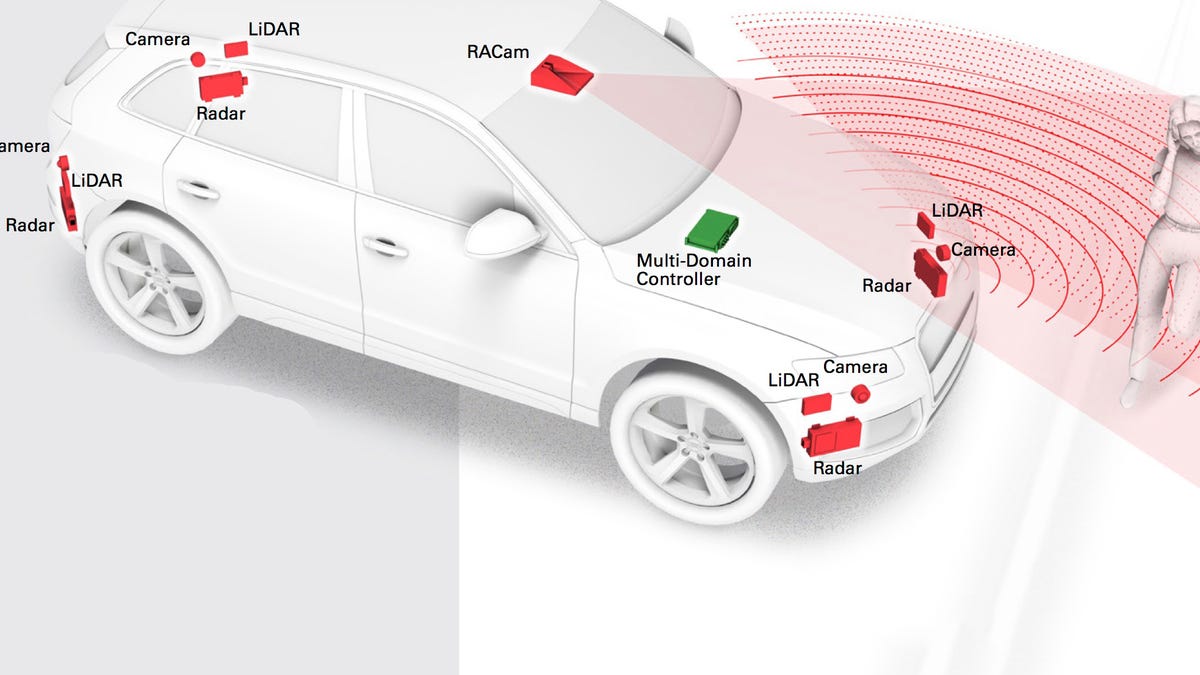Intel snaps up self-driving tech company Mobileye in $15B deal
The goal is to bolster Intel's own efforts in the autonomous vehicle industry and keep diversifying from PCs.

Intel knows how to start a week -- with a high-profile acquisition in a booming segment of the tech industry.
The world's largest chipmaker on Monday announced it agreed to acquire Mobileye, an Israeli company that develops technology for self-driving cars. Mobileye provides driver-assisted technologies for 27 automakers, including BMW, Ford, Volvo, Audi and Nissan. The acquisition is worth $63.54 per share, or about $15 billion total. Intel expects the deal to close in less than a year, and both companies' boards have already signed off.
The acquisition will result in a single autonomous-driving unit that combines Mobileye with Intel's Automated Driving Group. The group will be headquartered in Israel, and it will be led by Amnon Shashua, currently Mobileye's chairman and CTO.
I don't think you'll have to worry about big "Intel Inside" stickers in your next self-driving car.
"Mobileye brings the industry's best automotive-grade computer vision and strong momentum with automakers and suppliers," Brian Krzanich, Intel's CEO, said in a statement. "Together, we can accelerate the future of autonomous driving with improved performance in a cloud-to-car solution at a lower cost for automakers."
The deal is another big bet Intel opted to make as it tries to diversify itself away from its mainstay chip business in personal computers, which have posted weaker sales for years. Intel spent years ignoring the boom in smartphone technology and is now trying to play catch-up in that market. In the meantime, perhaps fearful of missing another huge shift in tech, the chipmaker is investing heavily in a handful of new areas.
In 2015, Intel agreed to buy fellow chipmaker Altera for $16.7 billion, helping Intel expand in the lucrative market of chips used in servers. Intel also has worked to grow in wearables, smart home, internet of things and virtual reality. Some of these bets have already failed, such as the company's acquisition of fitness watchmaker Basis, which ended last year in a large recall and Basis operations shutting down.
The acquisition is the world's largest purchase of a company dedicated solely to autonomous-driving tech. Mobileye is a busy supplier, covering some 70 percent of the market for modern driver assistance technology. Despite its many partnerships in the automotive world, Mobileye is no longer partnered with Tesla, perhaps the most notable electric-car maker, after Mobileye broke ties with the carmaker in a public spat last year.
Founded in 1999, the Jerusalem-based company has become one of the largest firms in Israel's thriving tech community.
The main benefit for Intel is expanding its reach in a fast-growing part of the automotive industry and having greater control over the process from concept to delivery. Intel said Monday the autonomous driving could become a $70 billion market by 2030. Mobileye in turn will benefit from Intel's massive global reach and chipmaking expertise, though it has relied on STMicroelectronics to produce chips for its parts for the last 10 years.
Still, Susquehanna International Group analyst Christopher Rolland said in a note to investors Monday that he was skeptical of the deal's longterm value because of Intel's spotty history with making the most of acquisitions.
Intel and Mobileye aren't exactly strangers. The two companies have an established partnership with multiple companies in the automotive sector. Mobileye lent its software-side prowess to Delphi for its autonomous research and development, with Intel providing the processors. The two also partnered with BMW, which believes it can bring a self-driving mode to its vehicles by 2021.
It's Complicated: This is dating in the age of apps. Having fun yet? These stories get to the heart of the matter.
Batteries Not Included: The CNET team reminds us why tech is cool.



